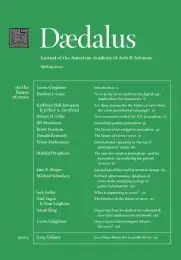The case for wisdom journalism—and for journalists surrendering the pursuit of news
When journalists and those who value them compose their apocalyptic screeds, when they repair to conferences to rend their clothes, wail their wails, and curse the Fates, they are wont to declare news itself to be in crisis.1 In this, however, they are wrong. News, for the most part, is in fine shape.
The recent arrival of the most powerful information technology in human history has been, on balance, a great blessing for news. The Web remains very young, but already it gathers accounts of an extraordinarily wide variety of events from an extraordinarily wide variety of sources. It disseminates these accounts in a wide variety of formats, fast and far. Never before have we seen a news medium like it.
This does not mean news on the Web is always edifying, constructive, or reliable. News in print or on TV, after all, has often enough failed to display those qualities. And the Web’s manifold strengths as a news medium do not mean all news will be equally well served by it. We have to be alert, as we must be with any medium, for blind spots. Once, it should be remembered, journalism reviews devoted themselves to cataloging the many egregious blind spots of newspapers and newscasts– with their sometimes narrow-minded “gatekeepers.” The Web’s weak points, at first glance, appear to be in coverage of news that grew up together with newspaper beat systems: varieties of local news in particular.
However, the growing numbers of us fortunate enough to have an Internet connection now have access to a remarkably generous supply of news. The gates have flung open. And the flow of news on the Web seems, if anything, likely to continue to broaden, deepen, and accelerate. Entrepreneurs and nonprofits are even beginning to address some of those blind spots. The future of news, in other words, appears reasonably secure.
It is the future of journalism that is looking grim. Journalists have made their living for approximately the last century-and-a-half either by selling news or by selling ads next to news. However, the flood of information on current events that is sloshing around the Internet right now can be had, mostly, for free, and the supply of news-rich pages on the Internet is now so large that it is hard to charge much for ads on those pages. Understandably, this new reality has strained profit margins and flummoxed business models. There is not much of a living in hawking that which is given away free.
. . .
